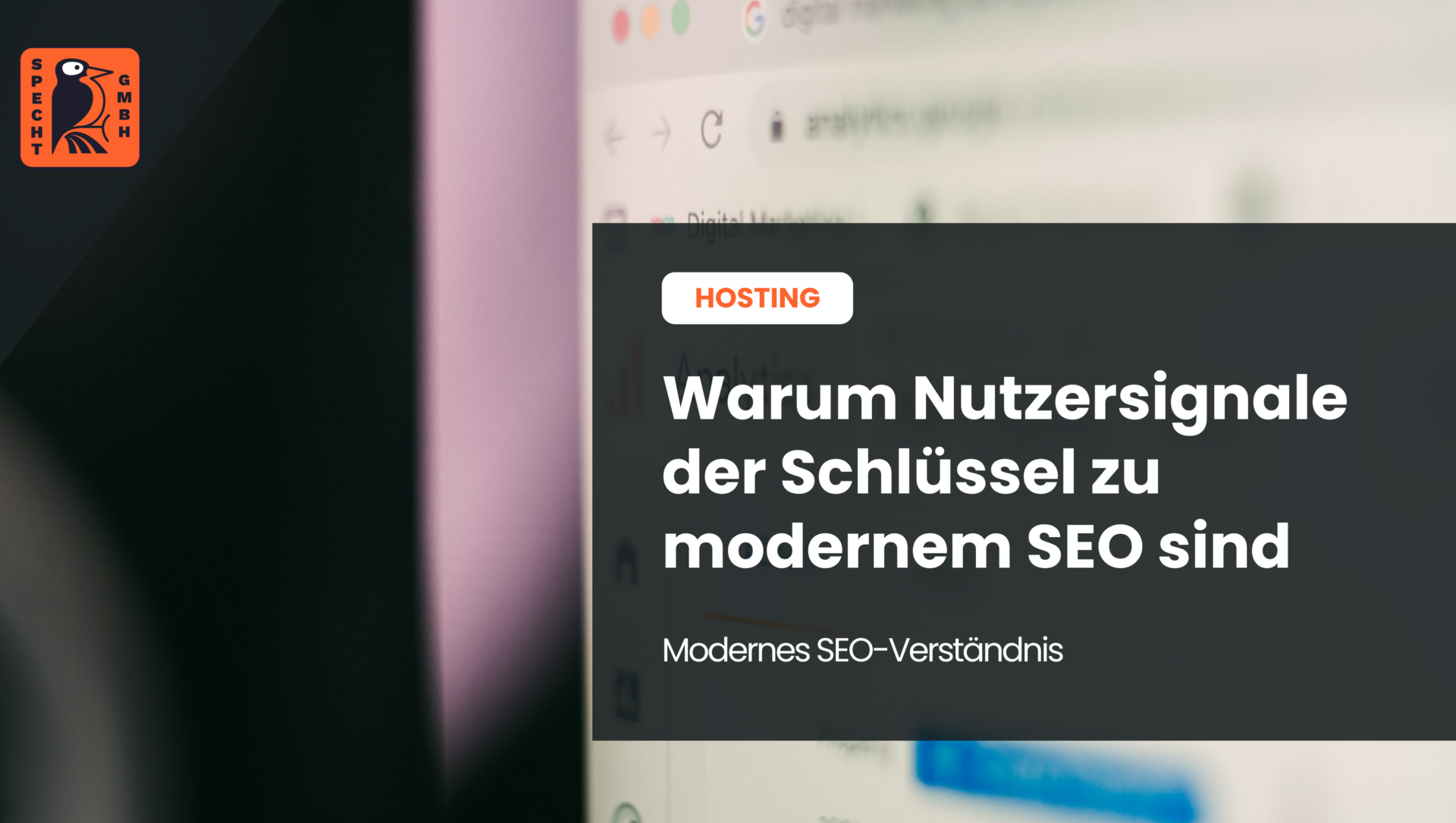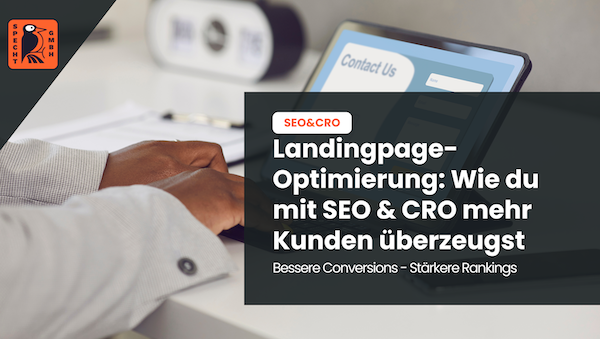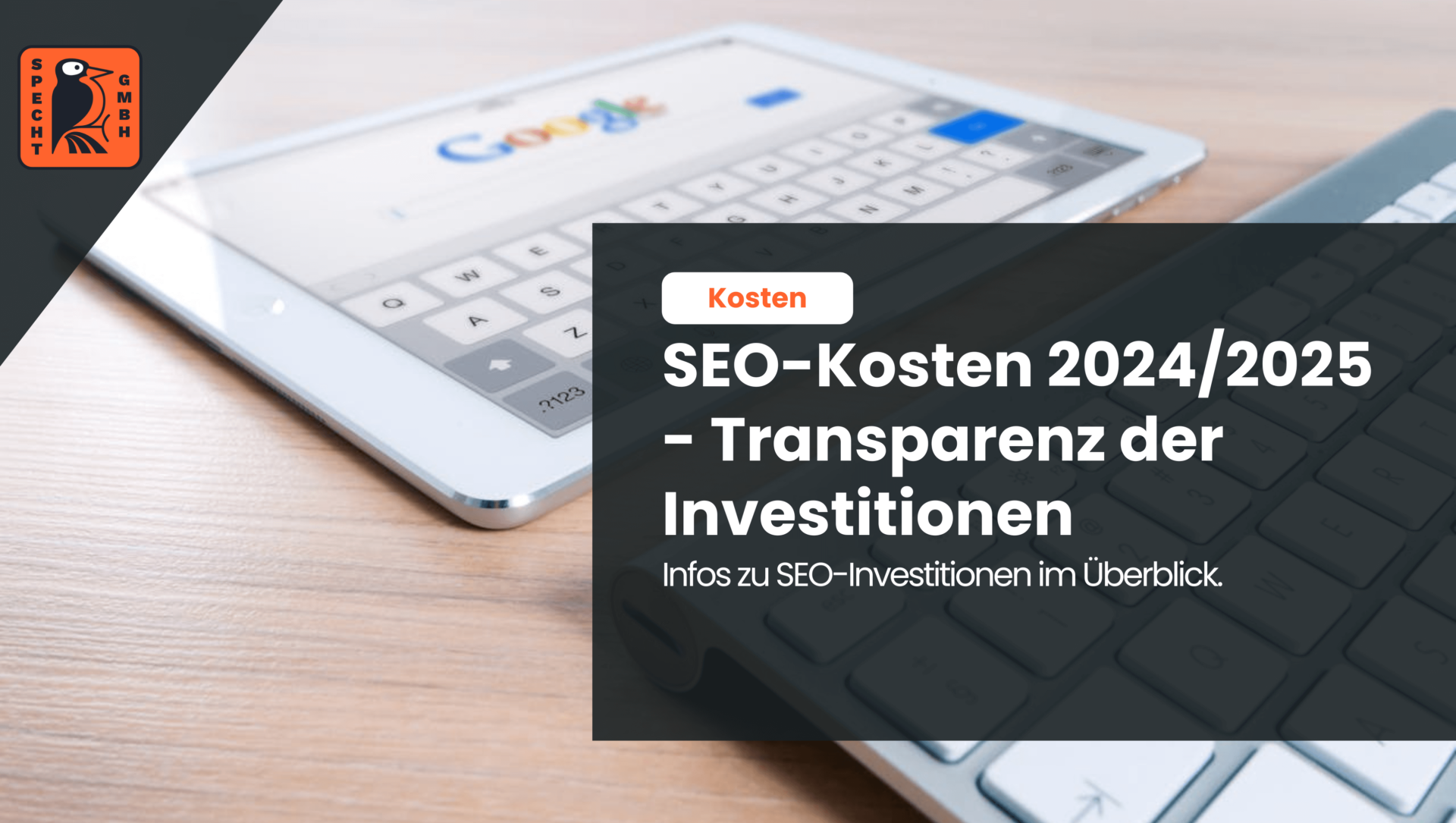In a nutshell: What is search engine advertising?
Search engine advertising - also known as SEA - is a part of search engine marketing. It includes all measures in which targeted advertisements are placed in search engines such as Google, Bing and others. SEA is an excellent way to expand organic reach with paid reach.
What is search engine advertising?
Search engine advertising (SEA) refers to the placement of advertisements in the search engine results pages (SERPs). Unlike search engine optimization, you do not build up organic reach, but pay the search engine to be displayed above the top search results.
Alongside SEO, SEA is an important part of search engine marketing. Search engine advertising is usually associated with Google, but it is also used in other search engines. You can also run SEA on Bing or Yahoo!
The basis of Google Ads and other advertisements are keywords - i.e. specific keywords for which your advertisement should be displayed. So when a user searches for a term, your offer appears above the top search results.
Search engine advertising is also known in other circles as search ads, sponsored links or keyword advertising. Most commonly, you will come across search ads in the form of text ads. However, there are also product ads in which not only a text but also an image is displayed.
- I am one of the leading SEO experts in Germany
I am known from big media such as Stern, GoDaddy, Onpulson & breakfast television and have already worked with over 100+ well-known clients successful on Google.
Google rating
Based on 185 reviews
Trustpilot rating
Based on 100 reviews
Where does search engine advertising appear?
If a user searches for something via a search engine such as Google using a search term, search engine advertising is displayed if there are advertisements for the keyword in question.
Text ads can always be found above the normal search results. As this is the best possible placement in the search results, users are made very aware of this. Although Google Ads are always marked as advertising, this does not matter to many users.
In a Google search, up to four ads are displayed above the organic search results. In some cases, further ads appear below them. It can also happen that a Google Ad is displayed on the second page of the search results.
You can also find product and shopping ads above the organic search results on Google. Sometimes they are also listed to the right of the SERPs.
-
Free
SEO strategy meeting
In a free SEO strategy talk, we uncover untapped potential and develop a strategy to help you become more successful on Google.

- More organic visibility
- More organic visitors to your website
- More inquiries & sales
Why should marketers run ads?
If users want to find out about a product, a service or a company, they mainly use the internet to do so. Google is by far the largest search engine with the most users, meaning that a lot of search queries are made here every day.
This makes it all the more important for companies, marketers and store operators to place more advertisements. This provides the opportunity to position companies and online stores more prominently in search engines. This increases the reach considerably, while at the same time, depending on the objectives, interested parties (leads) and sales are generated, for example.
Another advantage is that you don't have to approach customers directly. Because as soon as potential customers search for a product or service on Google and the like, a need already exists. All you have to do is pick up the prospective customer.
It is also possible to optimize ads for specific user and target groups. This is also known as targeting, where you determine exactly what your target group should look like.
Possible targeting options include:
- Keyword for the display of the advertisement
- Age from user
- Origin and region of users (for example, only users from the Hanover region)
- Language
- Gender
- Device: Computer or mobile devices such as tablet and smartphone
How does search engine advertising work?
Only a few steps are required to run search engine advertising and successfully place ads in search engine results.
First you have to register in the respective search engine's advertising network. For Google, for example, this is the well-known Google Ads network. Once you have registered and validated your account, you can set up your first campaign. This determines how the exact targeting should take place.
Last but not least, the advertisements are created that the user can see in the SERPs. For example, they link to an interesting blog post, a product or a landing page.
You can also define how much budget marketers want to spend. For example, daily limits can be defined. Various billing models are used for billing. If other marketers also place ads for a keyword, the marketer who places the highest bid is displayed first. You specify your maximum bid in advance in Google Ads.
What billing models are there for SEA?
There are different billing models for search engine advertising:
- CPC: With the cost per click model or pay per click (PPC), you as a marketer incur costs when a user clicks on your ad. If users only see your ad and do not click on it, you do not have to pay.
- CPAThe cost per acquisition model focuses on conversions. Here, a fee is only due when a user takes a predefined action, i.e. becomes a so-called conversion.
- CPT: Cost per Thousand is less common in search ads. It is more common in the area of display advertising. Here, advertisers pay for impressions.
Advantages and disadvantages of search engine advertising
Search engine advertising offers many advantages, which is why it is very popular with website operators. However, there are also certain risks that you should be aware of. We have compiled all the advantages and disadvantages of SEA for you.
Advantages of SEA
An unbeatable advantage of paid ads: as soon as you place an ad, you are noticed. You generate reach and have the chance of higher traffic, which in turn can lead to increased sales.
Unlike with search engine optimization, you see results immediately without having to wait a long time to see how your content performs. So if you want to gain visibility in a short space of time, SEA is ideal for you.
You can also estimate very precisely how many clicks you can achieve with your budget. Google Ads, for example, offers a very practical platform on which you can track your success and continuously improve and adapt your advertising campaigns.
This is another advantage of search engine advertising: flexibility. You can decide for yourself how much money you want to spend on it. If you want to take a break for a while, that's no problem either. You also have a lot of leeway when it comes to the keywords you use.
Another positive aspect is the targeting options. SEA is an excellent method that allows you to control who is shown your content and who is not. This offers you more control options than with search engine optimization.
Search engine advertising is therefore an ideal complement to search engine optimization in order to operate successful search engine marketing and successfully build up a reach.
Possible disadvantages of search engine advertising
You can quickly build up a certain level of visibility with SEA. But it can disappear just as quickly. If you delete or pause a campaign, you will no longer be visible unless you achieve a good ranking in the organic search results.
Therefore, you should always lay a foundation with SEO first and only use SEA as a supplement. Search engine optimization offers sustainable visibility, while search engine advertising is a short-term measure.
There is also the cost factor: if you generate traffic, it always costs you money. The costs for Google Ads can vary greatly depending on the campaign and keywords. However, if you want to be successful in a highly competitive market, it can quickly become expensive.
In addition, Google only considers the keywords that you have actually booked when displaying your ads. Meanwhile, you also have the chance to rank for other keywords with SEO. This means that SEA often offers somewhat limited options.
The following therefore applies: A combination of SEA and SEO is always advisable if you really want to be successful with search engine marketing.
Strategies for success with search engine advertising
A holistic strategy is required for success with SEA. It is best to combine several types of campaigns in order to achieve the best possible results. What works best for your company must therefore be tested in practice.
Numerous tracking tools such as Google Ads make it quick and easy to measure which measures are working and which are not. In addition, an SEA strategy should always be individually tailored to your company.
The following tips will help you get started with SEA:
- Define your marketing goals: It only makes sense to create an ad if you know what you specifically want to achieve. Otherwise, you won't achieve your goal.
- Get to know your target group: Analysis tools help you to understand how users interact with your website and which search queries your target group uses to find you.
- Continuously revise your landing pages: Since an ad leads directly to your landing page, you should always focus on its quality.
As search engine advertising covers a wide range of areas, it is worth getting an SEA expert on board. They can help you write high-quality ad texts, create an appealing landing page and meet all the necessary criteria for successful search engine advertising.
Conclusion: What is search engine advertising?
Search engine advertising is an excellent way of targeting potential customers and achieving quick results. For example, it is possible to place advertisements that refer to a product or service.
If the right targeting is used, a high reach with good leads and sales can be generated. Alongside search engine optimization, search engine advertising is an important part of search engine marketing.
- Do you know my SEO newsletter?
Register now and receive regular tips from the experts.






